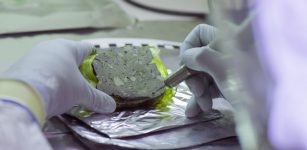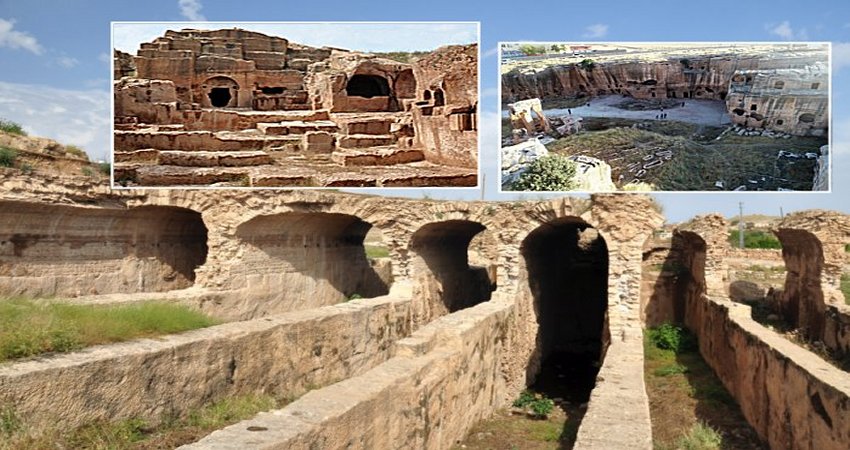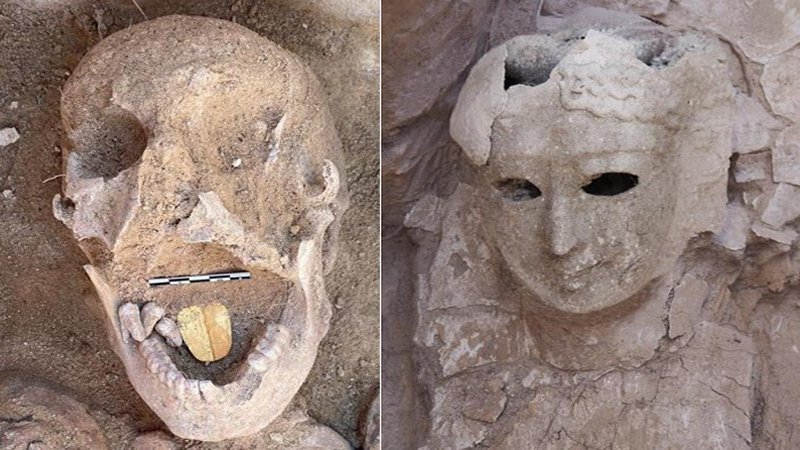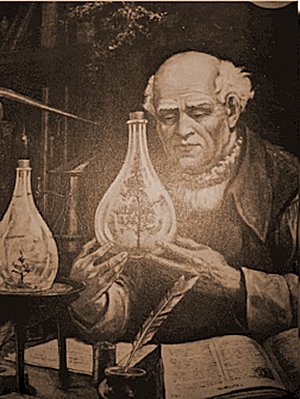Paracelsus: Physician, Alchemist, Philosopher Whose Works Greatly Influenced Early Rosicrucians
A. Sutherland – MessageToEagle.com – Paracelsus (1493 – 1541) – was a Swiss-German botanist, philosopher, astrologer, alchemist, and one of the most influential medical scientists in early modern Europe.
He initiated and widely spread the idea of iatrochemistry, a branch of chemistry with roots in alchemy, which seeks to provide chemical solutions to diseases and medical ailments. He introduced alcohol, arsenic, copper, lead and silver salts into medicine and developed drug dosing rules. He studied the toxic properties of substances, so he can also be considered the father of toxicology.
He also made an important contribution to the development of herbal medicine.
 He has been driven by invincible life energy and despite his unhealthy way of life, Paracelsus wrote over ten thousand pages devoted to surgery, alchemy, astrology, and theology. Due to constant conflicts with his employers and even colleagues, he had not so often any permanent job.
He has been driven by invincible life energy and despite his unhealthy way of life, Paracelsus wrote over ten thousand pages devoted to surgery, alchemy, astrology, and theology. Due to constant conflicts with his employers and even colleagues, he had not so often any permanent job.
“Paracelsus, there is a high authority for saying, was really one of the greatest Masters ever known upon the earth. In rank, he may be compared with Hermes Thrice-Master. Although he was the father of modern chemistry, his name has not yet ceased to be a by-word among men, for his revolutionary methods in medicine naturally gained him the hostility of the doctors and druggists of his day, whose pretensions he ruthlessly overturned. Being the “regulars,” they naturally had the ear of the public, and their denunciations have therefore colored history so that, although science is now beginning to recognize its debt to him, he is still widely regarded as having been a noisy impostor…” (The Path – April 1887)
His real name was Philippus Aureolus Theophrastus Paracelsus Bombastus von Hohenheim but he was celebrated as “Paracelsus.” His career differed radically from many of his colleagues.
At sixteen years of age, Paracelsus was already well acquainted with alchemical knowledge. After spending some time at the University of Basle, he led a wandering life, traveled throughout Europe, even visiting Arabia, Egypt, Russia, Finland, and the Arctic region, dispensing powerful wisdom centuries ahead of his time.
“Poison is in everything, and no thing is without poison. The dosage makes it either a poison or a remedy. Paracelsus
Working in the mines of Sigismund Fugger, he acquired valuable knowledge of metals and ores; he also studied diseases of his fellow-workers. Paracelsus had many talents and was gifted by nature. He believed that Nature was the best healer and that the best results could be achieved by natural methods.
Driven by invincible life energy and despite his unhealthy way of life, Paracelsus wrote over ten thousand pages devoted to surgery, alchemy, astrology, and theology.
Due to constant conflicts with his employers and even colleagues, he had not so often any permanent job.
“They drove me out of Lithuania, and Prussia, and Poland…The Dutch did not like me either, nor the schools… but thank God, the patients liked me!”
He was a visionary who considered chemistry the key to the whole universe where God was the divine alchemist who created the world.
This highly controversial scientist had a great knowledge of alchemy, surgery, and medicine and was strongly against superstitions and misconceptions and all authorities.
Paracelsus was a symbol-figure who stood for heroism, but he was also considered a charlatan. Traditionally working doctors accidentally killed dozens of his patients, according to Paracelsus, through their old-fashioned and dangerous treatment of the so-called blood-letting, a practice that Paracelsus firmly opposed.
The art of healing comes from nature, not from the physician. Therefore the physician must start from nature, with an open mind. Paracelsus
In one of his most polemical writings, a book from 1531 with the intriguing title “Paragranum” (Beyond The Seed) Paracelsus states that all physicians who follow Claudius Galenus (AD 129 – 199/217) teachings should be burned at the stake, exposed to cholera infection, drowned in mud or tormented by mosquitoes.
He made claims to manufacture potable gold granting prolonged youth and his claims may have been symbolic for the esoteric doctrine of a Universal Medicine based upon Light – the creative agent, the vibrations of which constitute the movement and life of all things.
Medicine rests upon four pillars – philosophy, astronomy, alchemy, and ethics. Paracelsus
Paracelsus was one of the first physicians who gave special importance to using chemicals, minerals in medical treatment as well as opiates as anesthetics in surgery. Paracelsus’s works greatly influenced the early Rosicrucians and some of his impressive ideas are startling even today.
Written by – A. Sutherland – MessageToEagle.com Senior Staff Writer
Copyright © MessageToeagle.com All rights reserved. This material may not be published, broadcast, rewritten or redistributed in whole or part without the express written permission of MessageToeagle.com
Expand for referencesRelated Posts
-
 Survivors Of The Latest Ice Age Thrived Near The Sea Of Galilee 23,000 Years Ago
No Comments | Jan 27, 2022
Survivors Of The Latest Ice Age Thrived Near The Sea Of Galilee 23,000 Years Ago
No Comments | Jan 27, 2022 -
 Surprising Discovery Of A Perfectly Ancient Road Shows Romans Moved Deeper Into Wales Than Previously Thought
No Comments | Jul 4, 2022
Surprising Discovery Of A Perfectly Ancient Road Shows Romans Moved Deeper Into Wales Than Previously Thought
No Comments | Jul 4, 2022 -
 Flexible Glass – Lost Ancient Roman Invention Because Glassmaker Was Beheaded By Emperor Tiberius
No Comments | Aug 30, 2023
Flexible Glass – Lost Ancient Roman Invention Because Glassmaker Was Beheaded By Emperor Tiberius
No Comments | Aug 30, 2023 -
 Vikings Filed Their Teeth For Unknown Reasons
No Comments | Mar 2, 2016
Vikings Filed Their Teeth For Unknown Reasons
No Comments | Mar 2, 2016 -
 Huge Statue Of Pharaoh Ramesses II Unearted In The Ancient City Of Hermopolis
No Comments | Mar 9, 2024
Huge Statue Of Pharaoh Ramesses II Unearted In The Ancient City Of Hermopolis
No Comments | Mar 9, 2024 -
 Europe’s Oldest Lakeside Settlement Protected By Defensive Barricade of Spikes- Discovered
No Comments | Aug 14, 2023
Europe’s Oldest Lakeside Settlement Protected By Defensive Barricade of Spikes- Discovered
No Comments | Aug 14, 2023 -
 Fantastic Biological Street Lighting: Using Glowing Plants And Trees As An Energy Source
No Comments | Jun 2, 2016
Fantastic Biological Street Lighting: Using Glowing Plants And Trees As An Energy Source
No Comments | Jun 2, 2016 -
 How Is DNA Preserved In Archaeological Sediments For Thousands Of Years
No Comments | Jan 3, 2022
How Is DNA Preserved In Archaeological Sediments For Thousands Of Years
No Comments | Jan 3, 2022 -
 Focus On Unique And Spectacular Gallery Grave In Ancient City Of Dara, Mardin
No Comments | Aug 24, 2020
Focus On Unique And Spectacular Gallery Grave In Ancient City Of Dara, Mardin
No Comments | Aug 24, 2020 -
 Ancient Egyptian Mummies With Golden Tongues Discovered In Alexandria
No Comments | Feb 3, 2021
Ancient Egyptian Mummies With Golden Tongues Discovered In Alexandria
No Comments | Feb 3, 2021

